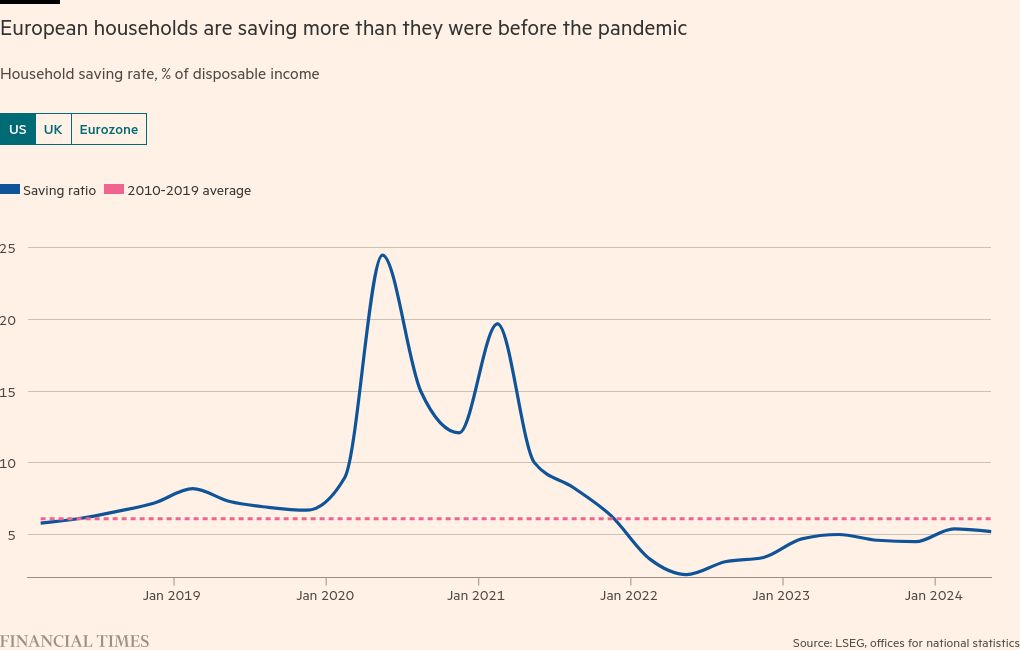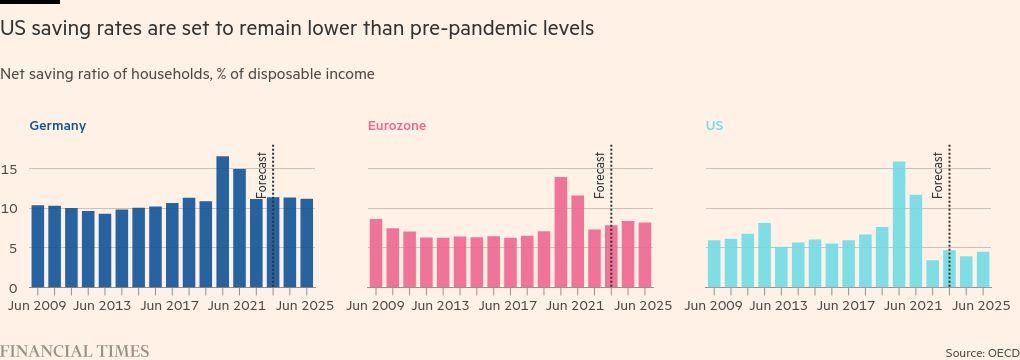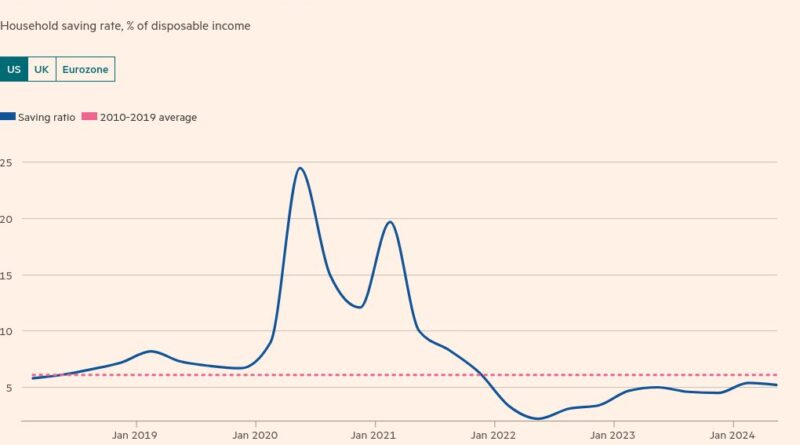Anxious Europeans are hoarding cash as US buyers boost the global economy
Stay informed about free updates
Just register to go World Economy myFT Digest — delivered straight to your inbox.
European households are saving at higher prices than before the crisis, according to data that highlights a clear and continuing difference from the powerful US consumers who drive the American economy.
Savings rates rose on both sides of the Atlantic during the pandemic as consumers were forced to stay at home. But while Americans have spent more, Europeans have struggled to shake feelings of economic insecurity following Russia’s invasion of Ukraine.
The average household savings in the Eurozone rose to a three-year high of 15.7 percent in the three months to June, above its pre-crisis average of 12.3 percent, according to data published by Eurostat on Friday.
Although the headline rates are not directly comparable, the trend is very different in the US, where spending helped accelerate the recession. The personal savings rate was 5.2 percent in the second quarter, below the 6.1 percent average for 2010-19.
“The low savings rate in the US has helped accelerate consumer spending, which has been the main driver of US growth, and the main reason why the US economy has grown faster than in Europe,” said Mark Zandi, chief economist at Moody’s Analytics. “The American consumer is driving the train of the world economy.”

Gross domestic product is on track to grow 2.6 percent in the US this year, boosted by strong household spending, according to the latest OECD estimates, compared with a rise of just 0.7 percent. in the euro area and 1.1 percent in the UK. .
In a sign of America’s continued expansion, the economy added 254,000 jobs in September, beating analysts’ expectations, according to data released on Friday.
A booming stock market and high property prices have helped American household wealth grow, Zandi said. In Europe, where shareholders are not broadly downgraded, the boost to rising prices has been small.
He added that European homeowners have short-term mortgages, which prompts them to save more money in anticipation of higher mortgage payments on new homes, while many homeowners In the US they are locked in at very low rates with 15 and 30 year fixed rate mortgages.
“The broader US bond market has been stronger, so American households have been in a position where they feel comfortable saving less money,” said Nathan Sheets, chief economist at US bank Citi.
“The European consumer is very cautious, and the American consumer is comfortable spending, spending, spending.”
UK consumers are also showing caution. The UK household savings rate rose to a three-year high of 10% in the second quarter, significantly higher than the 2010-2019 average of 7.5 per cent despite slower growth, according to official data published this week. .
Simon MacAdam, an economist at the Capital Economics consultancy, says the gains in European household wealth during the coronavirus lockdown have evaporated. He noted that European households are investing more in housing than before the pandemic, which is raising the level of savings in the Eurozone. Analysts said higher wages have not boosted confidence and spending.
The escalation of conflict in the Middle East may contribute to a sense of caution in Europe, which is more dependent than the US on energy supplies from the Middle East. Weak economic growth has also dampened attitudes; production made in the latest quarter of Germany.
“Europeans are saving a lot as they remain uncertain about the future with war on the horizon and a shrinking Germany,” said Samy Chaar, chief economist at Lombard Odier bank. A lot has changed for them, and not in a good way.

Economists have warned that savings figures are notoriously difficult to estimate because they represent the difference between two uncertain figures – income and consumption – and can often be adjusted.
The OECD forecast agreed that the household savings ratio – net of financial investment – in Germany and the Eurozone will remain higher than their pre-pandemic average and higher than that of the US until at least next year.
The Paris-based organization for major economies also predicts higher savings rates in 2025 than before the pandemic in the UK.
#Anxious #Europeans #hoarding #cash #buyers #boost #global #economy
